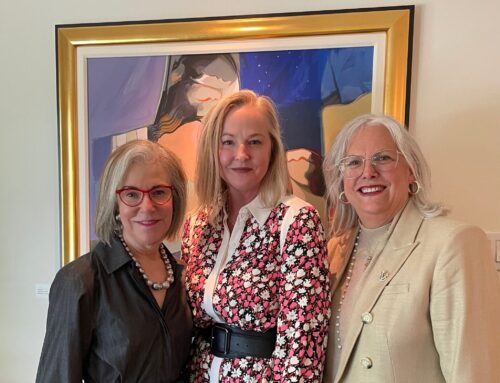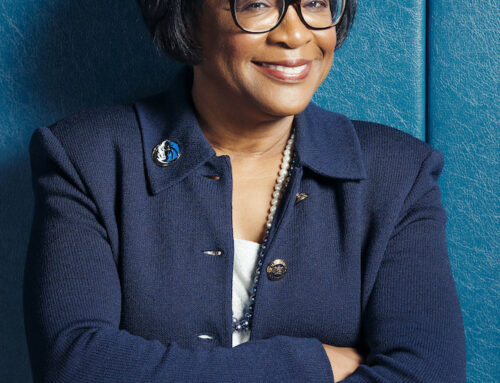Young ninjas train inside a Preston Road studio, honing skills that will serve them into adulthood. But these pupils are punching keyboards, not sparring pads.
Their sensei seek to strike the ideal balance between education and play.
This dojo is Code Ninjas, where students are 5-14-year-olds learning coding and computer literacy, led by instructors who are in high school or college.
The setup provides a framework for foundational learning and a culture of human interaction and mentorship, according to Jimmy Tran, who founded the first Dallas Code Ninjas in Preston Hollow in 2021.
Tran has a son and daughter in the coding classes, and he is particularly proud to say his “dojo” has as many girls enrolled as boys.
Across the system it’s closer to an 80% to 20% boy-to-girl split, which is unfortunate, he says.
“There’s zero reason why that should happen. In fact, girls should even be more represented,” he says. “They have a higher college acceptance and graduation rate than males working with computers and coding. It’s all brain work. There’s zero physical restriction. So you could be 100 pounds or 200 pounds; it doesn’t matter.”
That inclusivity idea applies to any kid who might not gravitate to more traditional activities such as sports, he adds. “This is a venue where they are comfortable, where they have the screen, but they also have other people around that they are relating to.”
For those reasons he says he often finds that young people with ADHD or who are on the autism spectrum can become excellent coders.
![]()
Photography by Natalie Murphy. Photo illustration by Jynnette Neal
Advancing computer and technological literacy can set kids up for a bright future, but women make up only 24% of today’s tech workforce, according to researchers at Source Report. And just 21% of undergraduate science degrees went to women in 2019. The study shows that while younger students seem to be equally interested in computer sciences, girls often lose interest in their teens, which the researchers attribute to longstanding gender stereotypes and a lack of role models.
Preston Hollow Code Ninjas has mentors for girls, thanks in part to its internship programs with several schools, including all-girl high school Ursuline Academy. After 60 hours, their unpaid internship converts to a paid internship.
“This creates a great pipeline of talented people,” Tran says.
One of those teachers, Shreya Ram, says she learned coding in about the fifth grade and became familiar with computers and tech through robotics.
“I really like teaching computer science because it’s a great way for kids to learn how to understand a problem, think it through and then come up with a solution,” she says. “It’s important for girls to be able to see that there are successful women in STEM careers and that it is an available path for them to pursue.”
Historically, education is focused on reading, writing and arithmetic. But now, Tran and many others believe, there is a vital fourth pillar. That’s STEM, or science, technology, engineering and math.
While students are more exposed to computer science as part of school curriculum, kids can benefit from the extra-curricular things taught at Code Ninjas, Ram says.
They learn things like typing and how to create on platforms they’re familiar with, games like Roblox and Minecraft, or creating their own games. Ram says they are having fun while also learning soft skills such as how to overcome obstacles and collaborate.
“I’ve always loved working with kids, and they’re always ready to learn something new and have fun,” she says. “It’s amazing to see young kids so excited about robotics and computer science.”






